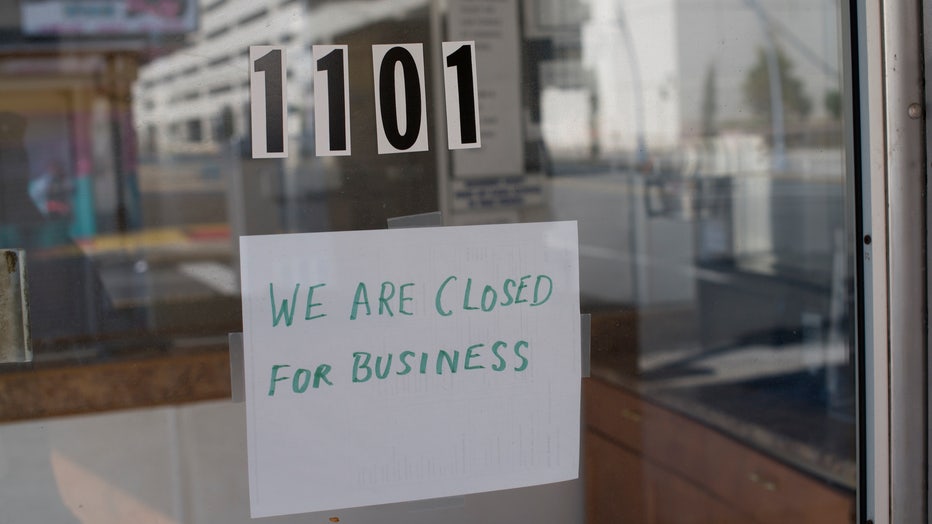How to stay calm in coronavirus uncertainty and hold on to your money
LOS ANGELES - The rapid and uncontrolled spread of coronavirus has generated levels of fear, uncertainty and volatility that can make sound investing decisions difficult.
Many can lose sight of their long-term investment objectives in the face of market volatility, rising unemployment levels, COVID-19 diagnoses and widespread social distancing.
Still, as fear accelerates market selloffs, it’s important to maintain a long-term perspective and stay invested through dramatic asset price movements.
RELATED: A guide to surviving financially as the bills come due
Experience shows that market downturns run their course eventually when investors price in extreme pessimism and assets re-anchor to broader expectations for fundamentals.
Investors can benefit from understanding the dynamics of longer-term market downturns and where the current decline sits historically, providing valuable context as prices whipsaw.
Bear markets also represent a good time to meet with your financial adviser to reassess portfolios and take steps to emerge well-positioned for the eventual rebound.

FILE - A sign at a motel lobby states "WE ARE CLOSED FOR BUSINESS" during the coronavirus pandemic on May 7, 2020 in Atlantic City, New Jersey. (Photo by Mark Makela/Getty Images)
Stock markets reflect both an economic downturn and an eventual recovery
By March 23, the stock market had fallen 37 percent from February highs, underscoring the kind of decline that would spook many investors into taking rash action.
As markets fall, investors tend to make two common mistakes. Some try to “time the market” or sell stumbling investments in response to negative news or plunging values, a tactic that tends to lock in losses (as evidence of the risk of this approach, we've already seen stocks rally from the lows reached in March).
RELATED: Fed takes emergency steps to slash rates and ease bank rules
Others will move investments to the sidelines, into money market or savings accounts to avoid market risk and ride out the turbulence. But holding cash, which appreciates slowly, creates its own problems: investment values must grow to reach long-term goals and neutralize inflation’s effects.
The markets have fallen to levels that have priced in a U.S. recession – a likely economic outcome, given the effects on GDP that widespread containment efforts have had on a consumer- and service-oriented economy. The market moves further suggest that investors and traders are already pricing in negative economic and earnings outcome to equity valuations.
You can take some comfort knowing that current levels reflect the high degree of pessimism already in the market, allowing the health of the economy entering this unique situation to play a key role in fostering its rebound after the virus fades. But investors may also find it important and reassuring to note that the recent selloff approximates the average bear market decline.
The anatomy of a bear market
History can provide some context for the current equity-market downturn’s scope and duration to ease emotions. Since 1955, the average total decline for a bear market was 26 percent. A bear market is defined as a decrease of 20 percent or more.
Historically, bear markets averaged 86 days from the initial 20 percent drop to the bottom. But the stock market typically recovered in dramatic fashion, returning an average of 25 percent over the next year and 32 percent over the following three years.
This economic downturn, though sharp and painful for many, stands out for other reasons. Unlike during the Global Financial Crisis in 2008-2009, for example, the U.S. financial and banking system now rests on solid foundations. In addition, the onset of the current slump isn’t tied to systemic failures in the financial system.
RELATED: CoronavirusNOW.com, FOX launches national hub for COVID-19 news and updates
Consequently, economists expect a period of temporary but significant disruption in employment and U.S. GDP is expected to decline sharply in the coming months. The path of the COVID-19 on the economy is still largely undetermined due to the unprecedented nature of a global health threat and the worldwide efforts to contain its spread through a sudden curtailment in economic activity.
But the pre-COVID-19 economy’s firm footing can potentially make the recovery in economic activity, overall investment and the stock market faster and more robust than normal.
Start rebalancing and diversifying
Finally, keep in mind that you needn’t make investment decisions in a vacuum. A financial adviser helps you stay focused and disciplined amid ever-changing headlines.
Given market conditions and expectations for economic recovery, there are opportunities for investors with long-term time horizons. Additionally, your adviser can help you rebalance overweight allocations into underrepresented asset classes and sectors.
You can also adopt a systematic approach: investing at regular intervals to take advantage of the price fluctuations. This reduces the timing aspect as the selloff ebbs. In addition, you should diversify.
Historically, a portfolio of 65 percent stocks and 35 percent bonds has fallen less than the Dow during market declines. Diversification won’t guarantee a profit or protect against loss, but it can help smooth out the market’s ups and downs.
Financial advisers can also help you define your ideal risk tolerance and temper market reactions, as well as refine your goals and investment strategies. During these emotional times, working with a financial adviser who understands your financial goals can help you stay on track.
No matter how frightening or unprecedented current circumstances appear, you can take some comfort from the historical consistency of market declines and recoveries, as well as the U.S. economy’s general underlying health prior to the novel coronavirus’s emergence and spread.
Above all, you should hold fast to your long-term horizons and moderate your reactions to avoid making emotion-driven market mistakes that could jeopardize your long-term investment goals.
Nela Richardson is an Investment Strategist at Edward Jones.

